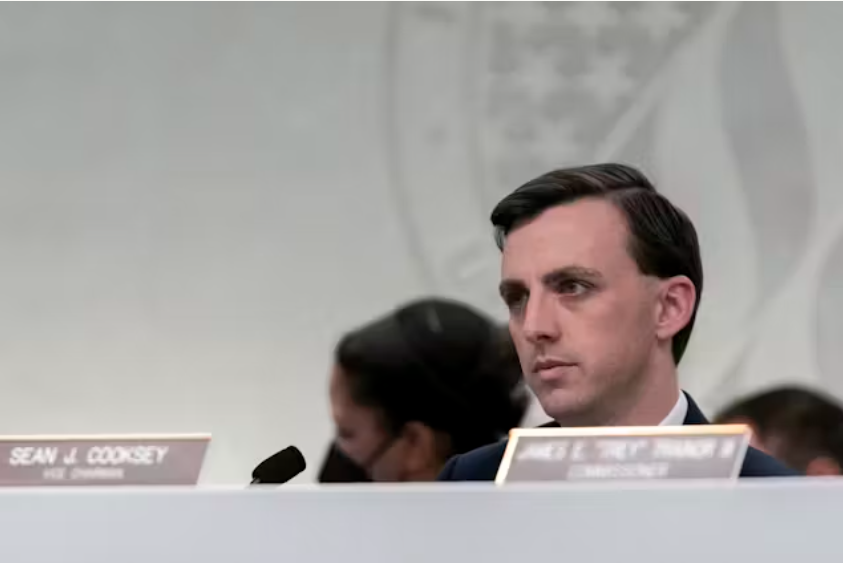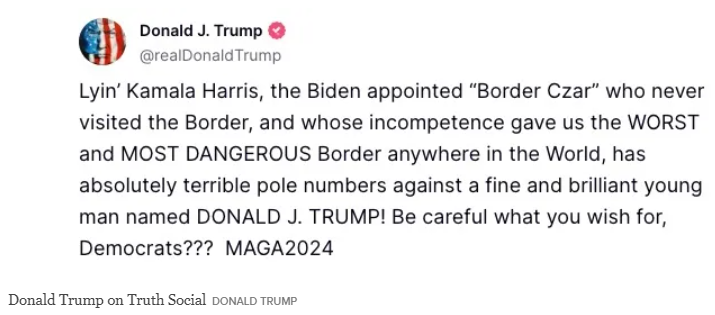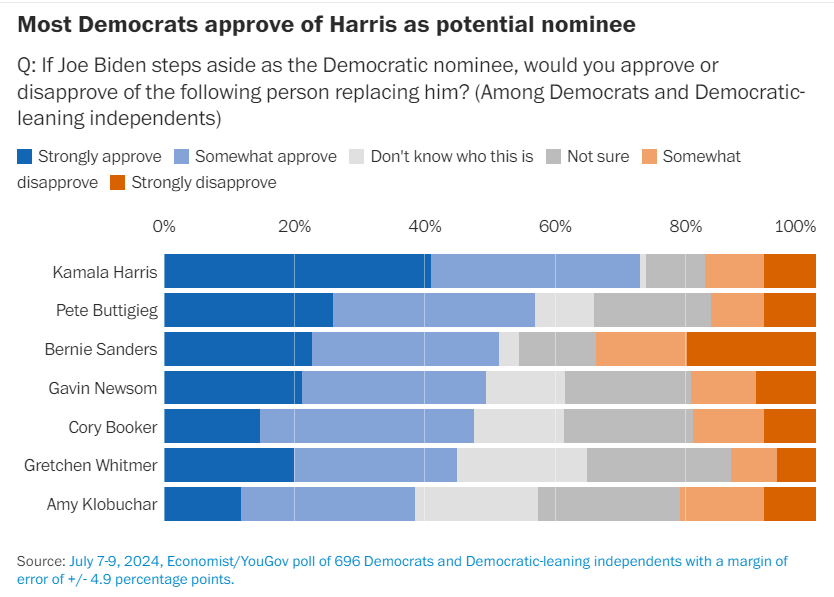Trump campaign files complaint againstHarris taking over Biden war chestRepublican presidential candidate Donald Trump's campaign filed a complaint with the Federal Election Commission on Tuesday, arguing that U.S. Vice President Kamala Harris could not legally take over funds raised by President Joe Biden's reelection campaign.
The fight over the accounts, which had roughly $95 million in the bank at the end of June, is part of a multi-pronged effort by Republicans to stymie Harris' bid to lead the Democratic ticket.The Trump campaign argued that Harris undertook a "brazen money grab," according to the filing by David Warrington, the campaign's general counsel. In the filing, which was shared with Reuters, Warrington said Harris was in the process of committing what he described as the "the largest campaign finance violation in American history."
Saurav Ghosh, a lawyer at the Campaign Legal Center, a non-partisan watchdog group, has said that because Harris was already part of "Biden for President" as the vice presidential candidate, her claim on the money should be secure.In any case, election regulators are unlikely to resolve the issue before the Nov. 5 presidential election.The FEC said they were unable to comment on unresolved enforcement matters.
This exemplifies, once again, the danger of sloppy writing of laws and regulations. Sufficient ambiguity and/or grammatical incoherence provides politically corrupted partisans with all the cover they need to get what they want, regardless of the sometimes clear intent behind the law or regulation. When original intent is unclear, the meaning of a law or regulation becomes a partisan power game.
Sean Cooksey, the Trump-appointed chair of the Federal Election Commission (FEC), suggested Monday that Vice President Harris may not be able to access the millions of dollars remaining from President Biden’s campaign, which many campaign finance lawyers say is rightfully hers.
Biden shook up the 2024 presidential race Sunday when he dropped out amid concerns about his age and mental acuity and endorsed his vice president. The campaign had just under $96 million in cash on hand as of June 30, according to its most recent report to the FEC, and filed paperwork to change its name from “Biden for President” to “Harris for President” within hours of the president’s decision.
Even before the campaign filed to change its name, Harris was listed as a candidate alongside Biden on its paperwork with the FEC.
Campaign finance lawyers previously told The Hill that Harris would be able to access the funds if she becomes the nominee. Democrats have started to coalesce behind Harris, but Cooksey called the situation “complicated” and suggested it would be challenged in the agency and at the courts.
“I think it’s really complicated, is the short answer,” Cooksey told “Morning Edition” on NPR. “What he’s attempting to do is to give his entire committee, the cash and all the assets, over to another person.”
“I think it’s gonna have to go through a process, through the FEC,” Cooksey added. “I expect, there’s probably going to be challenges to that at the agency, and probably in the courts as well.”
Democratic Commissioner Dara Lindenbaum, who chaired the commission last year, pushed back on the suggestion that Harris would not be able to access those funds.
“It’s quite clear, Vice President Harris can continue using the campaign committee and its funds,” Lindenbaum told The Hill.
Steve Roberts, former general counsel to Republican presidential candidate Vivek Ramaswamy, was also skeptical of Cooksey’s comments.
“This interpretation is likely wishful thinking,” Roberts told The Hill.
“Since the declarations of candidacy for 2024, the reasonable interpretation is that the Biden campaign committee is a shared one between Harris / Biden, and perhaps uniquely so because they are incumbents. Otherwise, in 2020, Trump-Pence wouldn’t have had a shared committee, but would have set up separate committees and had their own contribution limits,” he explained.
While Cooksey told NPR it is “entirely reasonable” to scrutinize the political motivations of members of the six-person commission, which may have no more than three members from each political party at any given time, he defended his record.
“I always try to approach these issues based on what the law requires and what is the best policy, not what’s gonna give people a certain partisan advantage in the short term,” Cooksey said.
Cooksey has sided with Democratic candidates and committees in controversial opinions that have angered many campaign finance reform advocates, including recent decisions that allow candidates to raise unlimited funds for state-level ballot measures, remove restrictions from certain mass text messages and make it easier for candidates and super PACs — which can raise unlimited sums of money — to coordinate on canvassing.





